Resident Evil VII
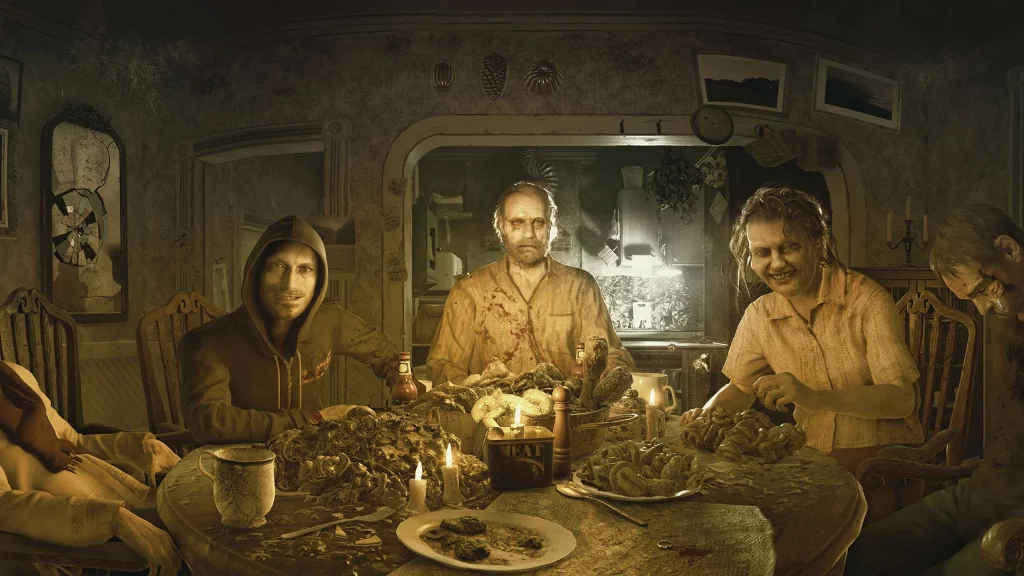
There is so much to love about this game. I love that it is an unashamed homage to The Texas Chainsaw Massacre, and to a lesser extent The Blair Witch Project and other “found footage” films. I love the RE Engine, which looks gorgeous while running well on all modernish hardware.
I love how it feels both new and old at once. The first person perspective and overall tone are different, yet it repurposes classic Resident Evil gimmicks (ie. the villain who stalks you throughout the game), and it is still plenty goofy when it needs to be.
RE VII was a sharp way to revive the series, pushing it in a slightly different direction that doesn’t abandon the series’ roots.
Fallout 76
This is probably my favorite game from 2017-2021.
I’m not going to try and convince you that all the bad reviews were wrong. Rather, I’m going to try and convince you that only some of them were. There were a lot of folks who were sad that Fallout 76 wasn’t quite the same as a traditional Fallout game, and I totally get that. I also understand that the kind of experience it originally aimed for was never going to be everyone’s cup of tea. And yes, my heart goes out to everyone who experienced crippling bugs.
But there were also critics who didn’t like it because they viewed it as (and/or wanted it to be) a looter shooter. And there were those who didn’t quite understand why the game had such vague, DIY, player driven systems in its initial release.
The answer, of course, is that the game’s dev team boasted many veterans of both Ultiimate: Online and Star Wars Galaxies, two MMORPGs whose worlds were extremely player driven.
For anyone with even a modicum of familiarity with how these two games worked, there was absolutely nothing about Fallout 76 that was in any way surprising (I guess I expect too much for 20-something journalists and bloggers to know much about video game history).
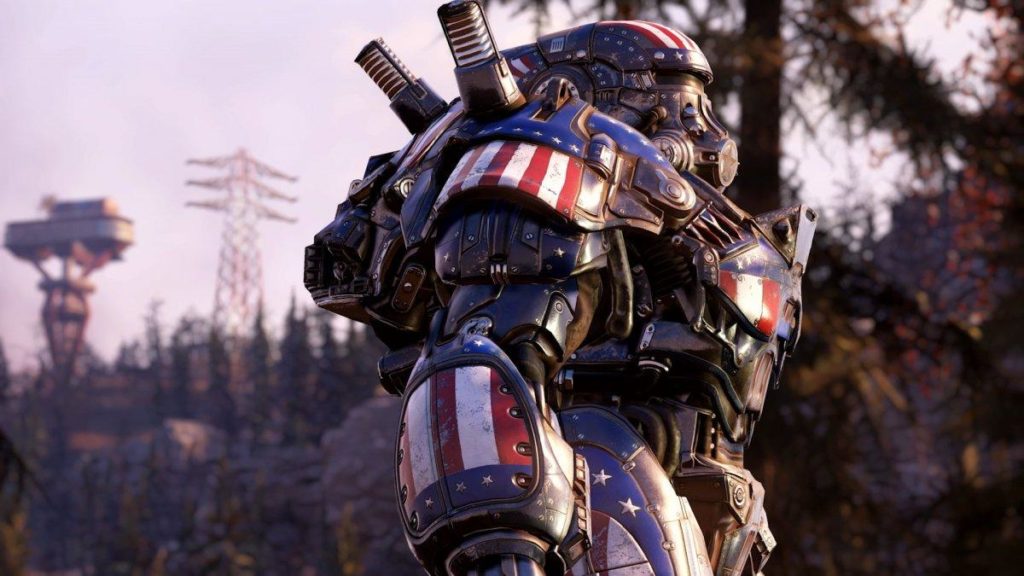
Just like in those older games, players were given spaces and tools with which to make their own economies and societies, and that is exactly what they did. It was wild and weird and amazing to watch as they pushed the game to do things it wasn’t initially made to accommodate.
Or you could go out on your own and enjoy the game’s excellent environmental storytelling, its heartfelt homages to real West Virginia landmarks, and its genuinely interesting story (which had a lot of things to say about automation and worker’s rights).
I don’t think I could go back to the game now, with all the changes that have been made. But that original release was one of my favorite gaming experiences of all time.
Control
I really wanted to like this one, but it shot itself in the foot. For reasons I don’t quite understand, Control is a non open world game that nevertheless incorporates lots of ideas from modern open world and live service games. Things such as:
- Weapon mods and “crafting materials” of different rarities randomly dropped by enemies
- Enemies that constantly respawn in each sector of the game
- Enemies that scale with the player’s level
- “Radiant quests” that are randomly generated and never stop showing up
Basically, the game never gives you a break to just stop and admire the beautiful environments, or read lore material you come across, or just be alone with your thoughts. It just constantly and relentlessly throws enemies your way, no matter how many times you’ve proven yourself against them.
Doom Eternal
Doom 2016 is my Platonic Ideal of how to modernize an old, classic game. It knew when to be old school and when to be state of the art. I couldn’t love it more if I tried.
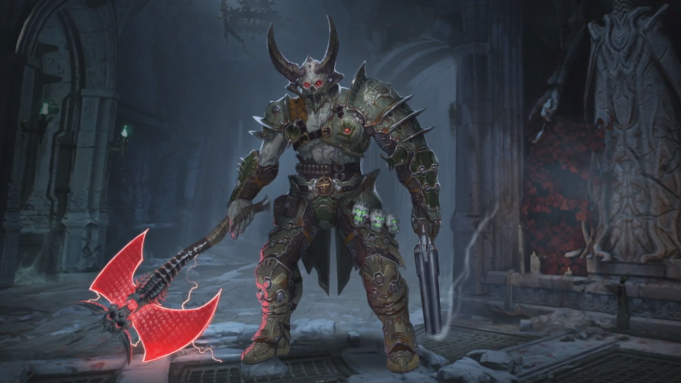
So of course Doom Eternal had to go and ruin it.
You don’t have to go far to find interviews with the dev team at id Software, in which they basically (and repeatedly) say – “Doom 2016 was actually really bad, and we have this vision for how to make it better. And it’s a perfect vision, and any complaint or objection you have to it is wrong, actually”.
What they essentially did was take Doom 2016 and inject Dark Souls. Not literally – there are no bonfires or recovering tchotchkes after dying. What I mean is that Doom Eternal expects you to die (and maybe die some more) until you are intimately familiar with every enemy pattern (and can respond to it correctly), every weapon (and exactly when you should switch to it), and every corner of every setpiece. And if you ever find yourself struggling, you will find that the response from other players (and the developers themselves) is “git gud”.
Doom Eternal bred the same passive aggressive gatekeeping that is legion among FromSoftware fans, driven by a development studio (and journalists) who act as if none of their ideas could possibly be flawed. For that reason alone, I can’t abide by it.
But even if you ignore that, there are other problems. One is that the gameplay loop is simply too much. To be clear, I had no problem clearing the game on my difficulty of choice. It wasn’t “I cannot do this”, but rather “I can do this, but the experience is extremely mentally taxing, and I wanted a shooter that lets me blow off some steam while being reasonably challenging. Kind of like …. Doom 2016!”
Also, unlike its predecessor, Doom Eternal shoves a lot of lore and worldbuilding into your face whether you like it or not, and none of it is very good. The game goes up its own asshole in its attempts to flesh out the world of Doom, and at different moments it either takes itself too seriously, or not seriously enough.
AC Odyssey
This game broke me. Just absolutely broke me in two in a way that made me question what I was doing for the last several dozen hours.
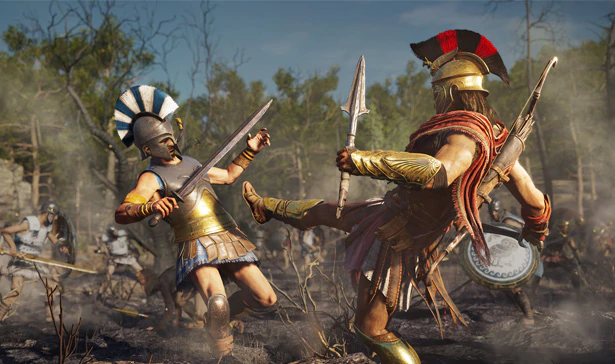
Odyssey is the epitome of modern Live Service game design. Look at it from the right angle, and you can see just how precisely (and cynically) it is designed to shut down your higher cognitive capabilities in the name of pleasing your lizard brain. Play it with enough self awareness or detachment, and you can see the individual components of its virtual Skinner Box.
The map is massive, but lifeless. There’s nothing about any individual village (or even city) that differentiates them from any others. It is filled with an overwhelming number of quests, each one carefully placed such that you are never more than five or so minutes away from your next tiny dopamine hit (which will give you a high lasting around five minutes, which of causes your lizard brain to take control and push you to move to the next thing to get your next fix, again and again until it’s 3:00 in the morning).
There are weapons with rarities, enemies with HP bars above their head, skills to unlock and crafting materials to harvest. It’s an MMO in a pair of single player shoes. The story has multiple plot threads happening at any given time, to the point where it is easy to forget just what your character’s goals are.
Odyssey is everything, and as a result it is nothing. There is perhaps nothing that better signals its intent than the fact that your character can climb almost any surface (even smooth looking walls, as if they were Spiderman), and cannot die from fall damage. This is the game very explicitly saying “we aren’t going to let anything get in the way between you and your next dopamine fix”. It’s a mindless game, and I walked away terrified at the fact that it pulled me into the void for as long as it did.
Jedi Fallen Order
This was a surprisingly chill Star Wars game that has really strong Metroidvania vibes.
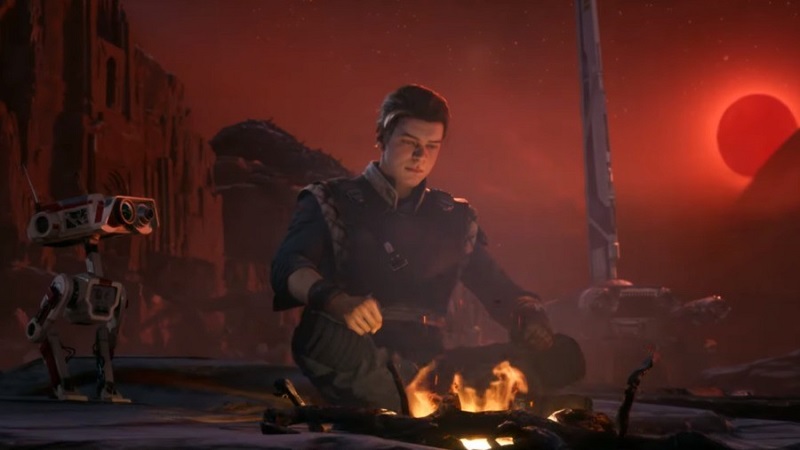
That’s it. That’s why I liked it.


It’s nice to have another perspective on Fallout ’76, Christian. I’ll freely admit I just wrote it off after thumbing through a few reviews, so I’m pleasantly surprised to get a better feel for it’s lineage and intentions. I’ve not really had the time (or, in earlier days, time and reliable internet connection) to jump into a game with the kind of community driven aspect that appealed to you, though I’ve often admired the idea and followed along wide eyed at stuff like crazy EVE online power struggles.